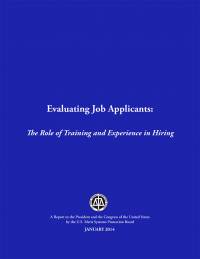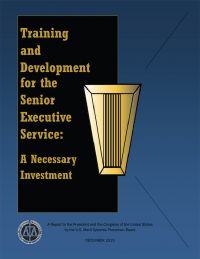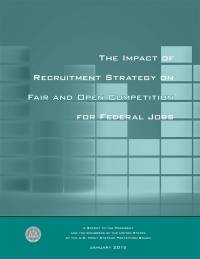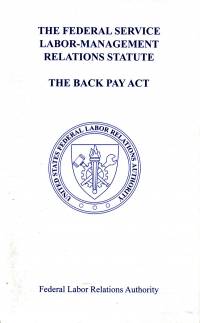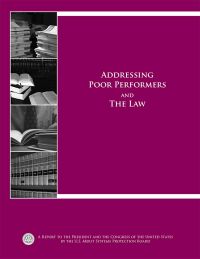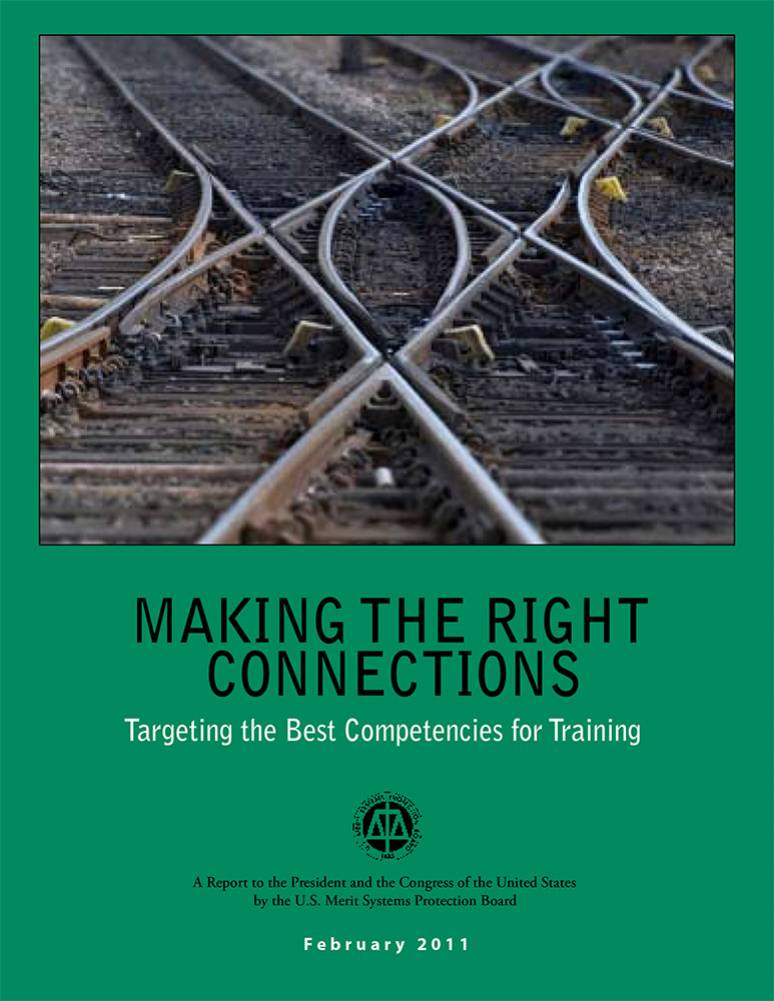
This report acknowledges that some abilities needed for Federal jobs are inherently more difficult to learn than others. It contrasts employee perceptions of how difficult it is to learn certain job-relevant abilities with research findings about the actual trainability of these abilities. MSPB's goal is to help agencies use training resources more effectively. Employee selection can also be more effective when agencies target difficult-to-learn abilities to ensure that persons with those abilities are hired into the workforce.
Executive Summary I
Chapter 1 – Background 1
Why Study Training? 1
Strategic Perspective 4
Overview of Study Methodology 6
Organization of This Report 7
Chapter 2 – Competencies and Trainability 9
A Common Language 9
Reemphasizing Trainability 11
A Framework of Competency Types 13
Federal Employee Beliefs About Trainability 17
Summary 18
Chapter 3 – The Training Employees Want 19
Training Needs and Trainability 19
Employee Beliefs About Training 20
Workplace Constraints 25
Solutions—Setting Employee Expectations 27
Summary 28
Chapter 4 – The Training Employees Receive 29
Training Classes and Trainability 29
Before Training 30
Training Evaluation 33
Solutions—Training Needs Analysis 36
Summary 37
Chapter 5 – Competencies Needed on the Job 39
Job-Critical Abilities and Trainability 39
Solutions—Competencies and Hiring 42
Summary 43
Chapter 6 – Conclusions and Recommendations 45
Conclusions 45
Recommendations 47
Appendix – Study Methodology 49
Federal employees, their supervisors, agency management, union personnel, especially Human Capital officers and employees across the U.S. Federal Government may be interested in this report. Additionally, members of Congress, and Federal managers within the Office of Management and Budget, and Office of Personnel Management that is responsible for policy making authority may find this guide helpful as a reference with human resources and civil service matters. Additionally, students pursuing research for courses within these fields, especially public administration, human resources, employment law, organizational development, and industrial-organizational psychology may find this primary source document that deals with civil service issues helpful for assignments.


